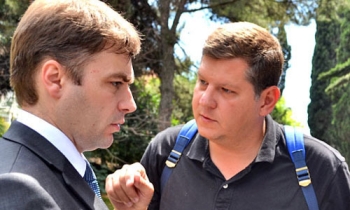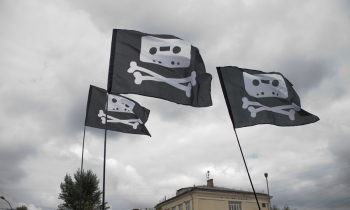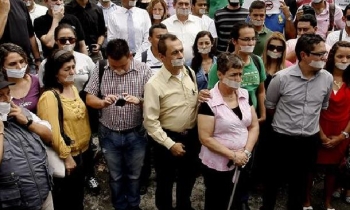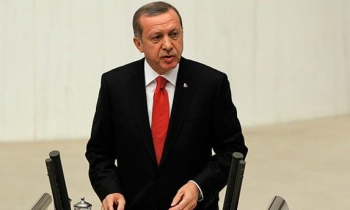Vedat Kursun, the biggest shareholder in Turkey’s only Kurdish-language daily, Azadiya Welat (Free Country), was sentenced to three years in prison by a court in the southeastern city of Diyarbakir on March 30 on a charge of propaganda for the outlawed Kurdistan Workers Party (PKK), Reporters sans Frontières (RSF) has said.
The newspaper’s managing editor until jailed last year, Kursun is the latest in a series of Kurdish journalists to fall victim to Anti-Terrorist Law No 3713. In this case, he was convicted under article 7 of the law for content in the issues of August 2007 11 and 12, but he could eventually accumulate a combined jail sentence of 525 years for other stories published between 2006 and 2008.
“We condemn the persecution of this newspaper and its editors,” Paris-based RSF said. “These disproportionate punishments expose the contradictions of the government’s policies, especially last year’s initiative that was supposed to give more rights to Turkey’s 25 million Kurds (a quarter of the country’s population) and draw them closer to international standards.”
It said, “The Turkish authorities seem unable to shed their repressive attitudes even when the country’s only Kurdish-language daily newspaper is concerned. The sentence speaks volumes.”
An Istanbul court has meanwhile just suspended Azadiya Welat for two months under article 6 of the Anti-Terrorist Law, which empowers the courts to close media which “in the context of terrorist activities, openly incite a crime, praise a crime or a criminal, or disseminate a terrorist organisation’s propaganda.”
The newspaper’s offence was to publish an article in its March 27 issue referring to the PKK’s jailed leader, Abdullah Öcalan, as “the Kurdish people’s leader.” It is the seventh time it has been suspended since becoming a daily in 2006. Its issues are also often confiscated.
As far as the authorities are concerned, many of Azadiya Welat’s articles contain pro-PKK propaganda and, as a result, their authors and the editors in charge at the time of publication are all liable for prosecution under the Anti-Terrorism Law. Launched in 1978 to fight for Kurdish independence (or nowadays, autonomy), the PKK turned to “armed struggle” in 1984 and is on the government’s list of terrorist organisations.
Kursun is still facing prosecution in Diyarbakir for another 103 alleged violations of article 7 of the Anti-Terrorism Law and one violation of article 6, which says that “anyone carrying out an action in the name of an illegal organisation must be punished as a member of that organisation.”
Speaking at the March 30 hearing, Kursun said, “I did not publish the content with the aim of spreading PKK propaganda, but under the right to obtain information and communicate it to the public.” Ozan Kilinç, who took over as editor after Kursun’s conviction in 2009, was himself sentenced to 21 years and three months in prison on February 10.
The European Court of Human Rights has condemned Turkey 12 times for violating free expression. Seventeen per cent of the rulings issued by the court since 1959 have concerned Turkey.









